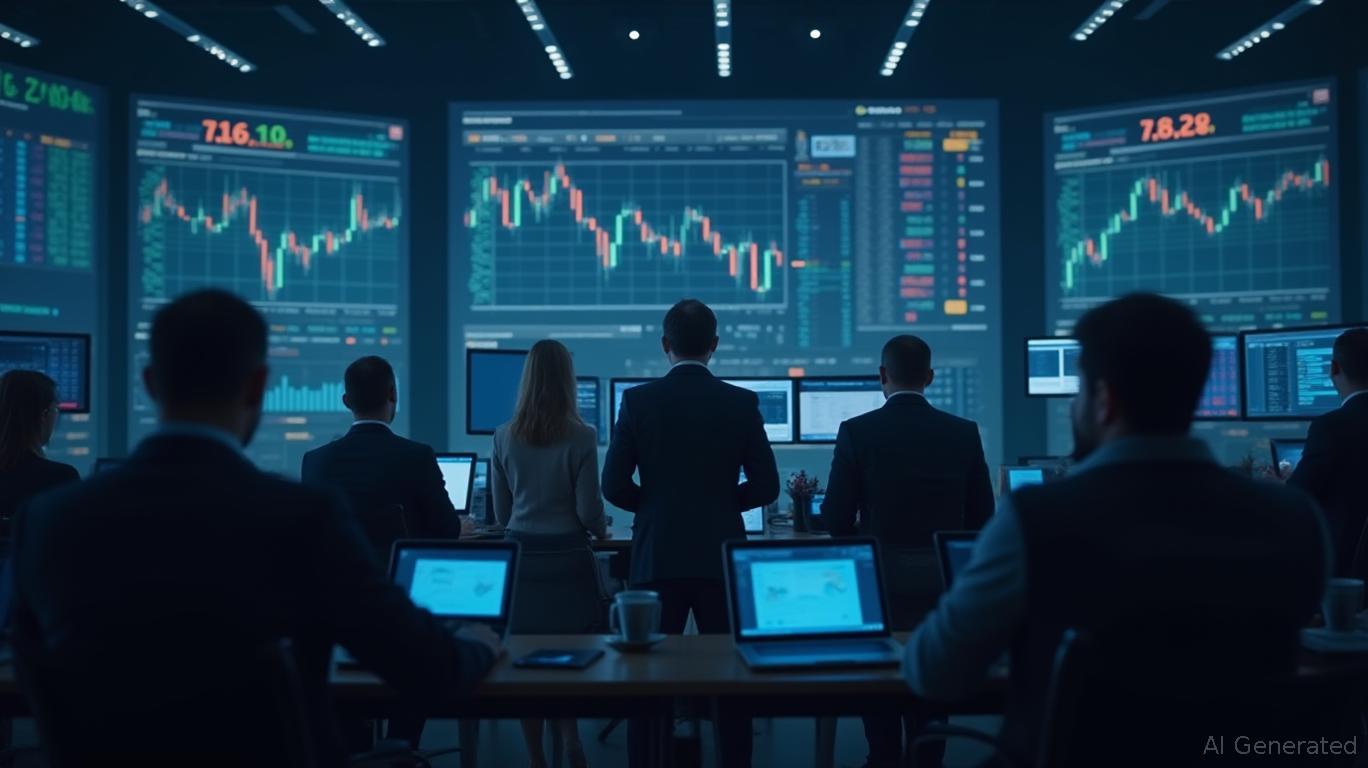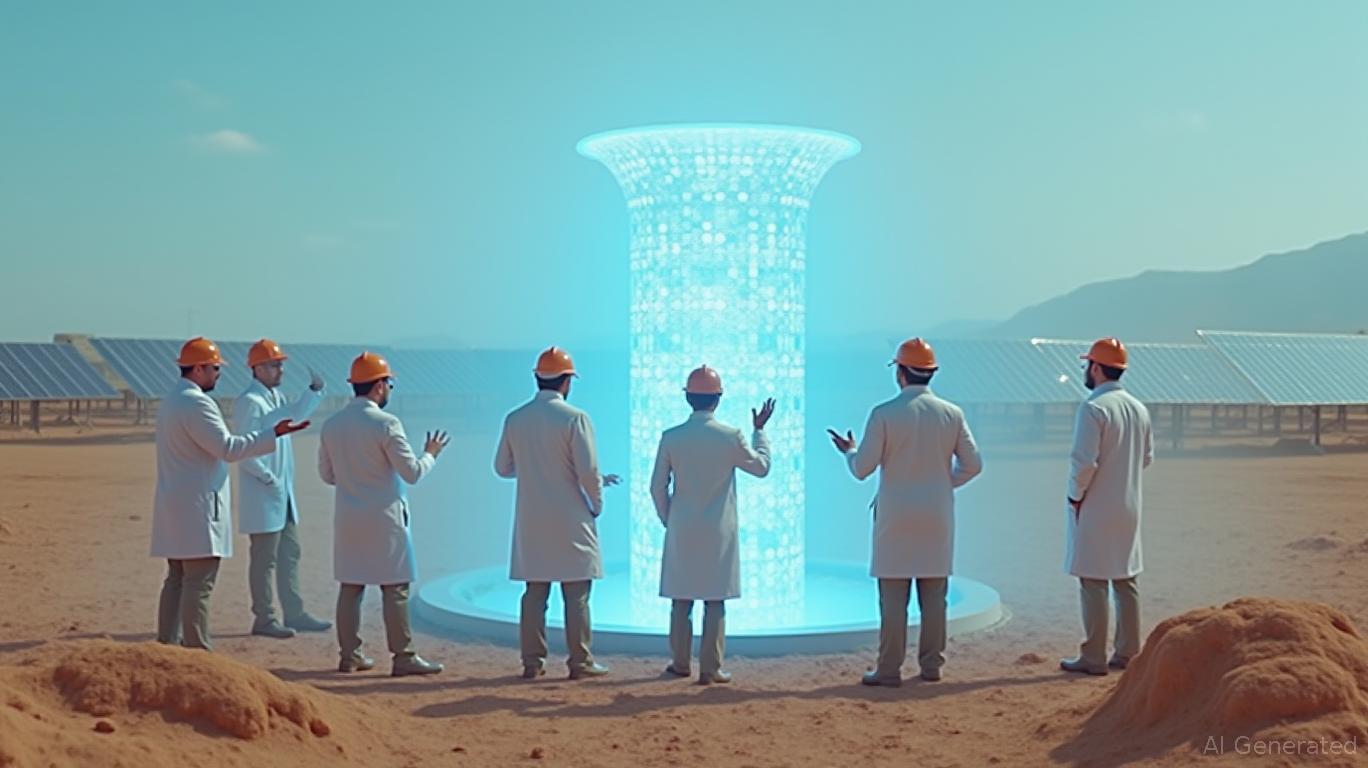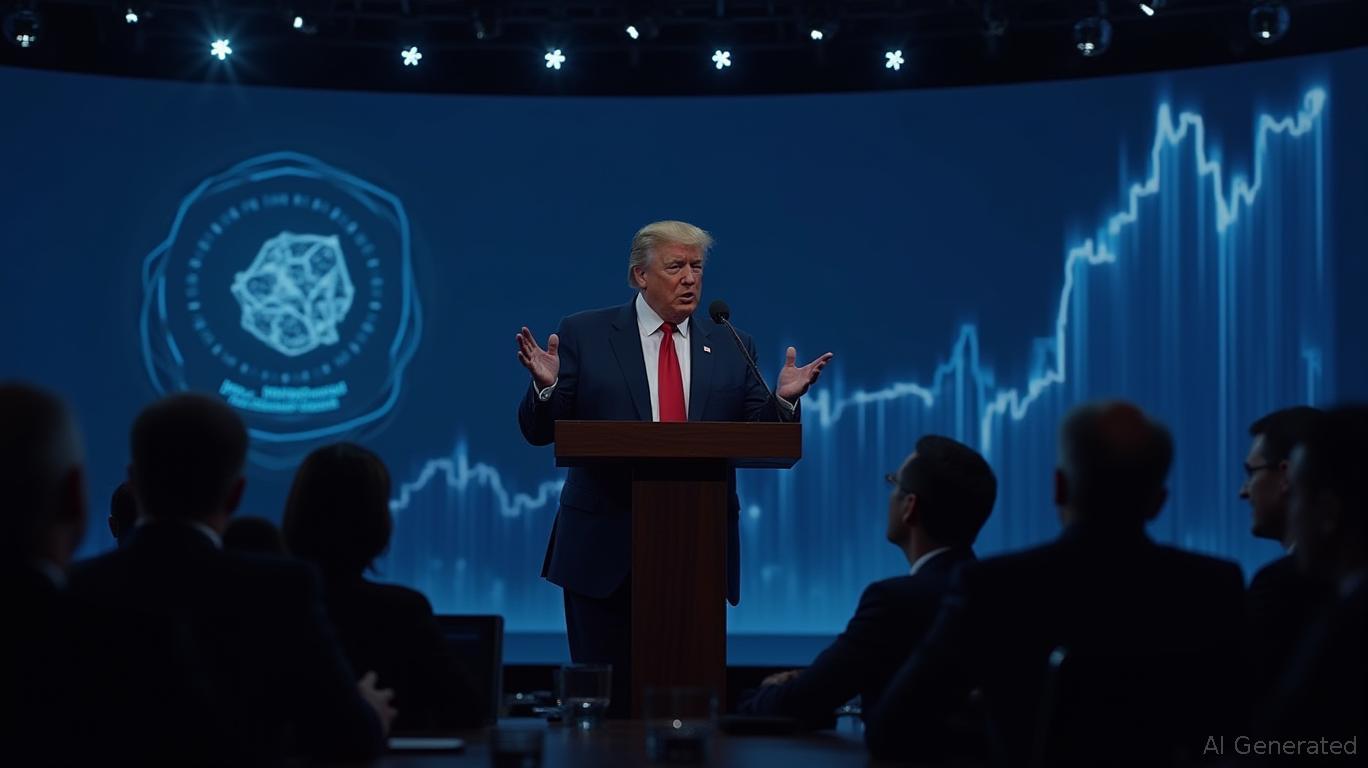U.S.-China Trade Tensions Intensify as Beijing Advocates for a Multipolar World Order
- China's Wang Yi emphasized a "multipolar world" amid U.S.-China trade tensions, framing it as an inevitable shift in global power dynamics. - Beijing's five-year plan prioritizes reducing foreign tech reliance and boosting domestic consumption, while U.S. tariffs and Chinese export controls disrupt global supply chains. - Pre-summit talks show "preliminary consensus" on avoiding further tariffs, but structural rivalry persists over rare earths, soybeans, and regional alliances. - Regional diplomacy highl
China has highlighted the certainty of a "multipolar world" just before a crucial meeting between President Xi Jinping and U.S. President Donald Trump, as ongoing trade disputes and strategic rivalry between the two countries continue to alter the global economic and political landscape. Chinese Foreign Minister Wang Yi made these comments, reflecting Beijing's determination to resist U.S. economic pressure and promote its vision for a more distributed international system, as reported by the
These talks are set against the backdrop of China's most recent five-year plan, which focuses on decreasing dependence on foreign advanced technology and encouraging domestic spending amid intensifying trade tensions. Following a high-level Communist Party gathering, the plan, according to

Despite ongoing negotiations, officials from both nations remain engaged in a series of retaliatory actions. The U.S. has enacted broad tariffs, including a 100% duty on Chinese imports effective November 1, while China has responded with restrictions on exports of vital minerals and rare earths, according to
Diplomatic efforts in the region have also been prominent, with China aiming to ease relations with Australia following military incidents in the South China Sea and amid broader U.S.-led alliances. Premier Li Qiang highlighted the importance of cooperation in green technology and digital innovation during discussions with Australian Prime Minister Anthony Albanese, as reported by
The upcoming Trump-Xi summit carries significant weight. U.S. Treasury Secretary Scott Bessent suggested there may be advances on rare earth and soybean agreements, but larger issues—such as U.S. efforts to persuade European partners to distance themselves from China and Beijing's growing presence in the Pacific—are still unresolved, Bloomberg noted. China's foreign minister once again called for "removing politics from economic matters" and opposing "trade conflicts," presenting the multipolar world as a natural progression in global affairs, according to the Economic Times.
As both countries maneuver through these intricate circumstances, the prospects for collaboration remain uncertain. While each side recognizes the importance of managing disagreements, the fundamental contest for technological and economic leadership appears set to continue, as reported by
Disclaimer: The content of this article solely reflects the author's opinion and does not represent the platform in any capacity. This article is not intended to serve as a reference for making investment decisions.
You may also like
Bitcoin Updates: Bitcoin Matches Equities in Investment Portfolios as $30B Inflows Indicate Institutional Transition
- Crypto market consolidates amid cautious trading ahead of macroeconomic events, with Matrixport noting "mostly sideways" conditions despite sustained institutional inflows. - Bitcoin rebounds to $126,000 after $3.55B ETF inflows in October 2025, driven by BlackRock's iShares Bitcoin Trust and growing corporate BTC holdings. - Market volatility spikes from Trump's China tariff threat ($19.35B liquidations) but stabilizes near $111,000 support, with Fed's October 29 rate cut (96.7% expected) seen as potent

ISR Technology Fuels America's Uranium Comeback to Strengthen Energy Security
- enCore Energy discovers shallow uranium deposits in Texas using ISR, cutting drilling costs by 40% and leveraging existing infrastructure for rapid production scaling. - Urano Energy acquires enCore assets to expand its uranium portfolio, aligning with U.S. energy security goals amid reduced reliance on Russian and Central Asian imports. - Federal policies and DOE initiatives prioritize domestic uranium production, with enCore's dual ISR operations (Alta Mesa/Rosita) positioned to benefit from regulatory

Trump’s Innovation Strategy Fueled by Unified Crypto Oversight and Advancements in AI
- Trump nominated SEC crypto task force chief Michael Selig to lead CFTC, aiming to unify cryptocurrency regulation and clarify agency authority over digital assets. - Port3 Network expanded Web3 AI infrastructure through five strategic partnerships, enhancing agent development and security while participating in industry growth discussions. - Defense AI firm BigBear.ai saw 300% stock growth from military contracts and airport tech, despite $228.6M losses, with $390M cash reserves supporting future expansi

Mystery Wallet Aligns $5M Fartcoin Wager With Expectations of Fed Rate Reduction
- A 0x71a0 wallet holds $5M in Fartcoin (FARTCOIN) with strategic $0.6–$1 take-profit orders, reflecting speculative positioning ahead of the Fed's rate decision. - Fartcoin surged 20% from October lows, showing bullish divergence and potential retest of $0.40 support, a key level for trend validation. - The Fed's expected 25-basis-point cut and end of quantitative tightening could boost risk assets, with Bitcoin's open interest spiking to $37.63B. - Institutional-like positioning contrasts with retail cau
